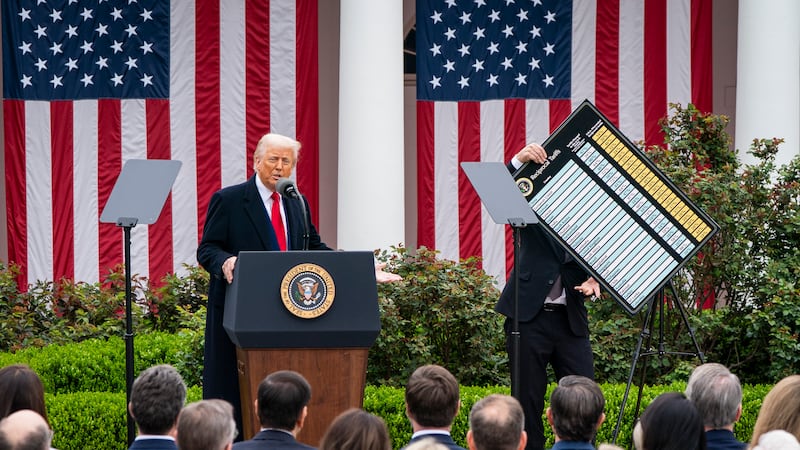The State has asked the High Court to stop two consortiums who failed to secure the State's second mobile phone licence in 1995 from continuing legal challenges to the manner in which the licence was allocated to Esat Digifone.
John O'Donnell SC, for the Minister for Enterprise, Trade and Employment and the State, said yesterday that the "gravest allegations" of fraud, conspiracy, deceit, corruption and malfeasance in public office had been made by Comcast International Holdings and Persona Digital Telephony in their challenges to the licence award.
Those challenges were initiated in 2000 and the claims, which impugned the integrity of former minister Michael Lowry and civil service personnel involved in the licence selection process, had been "left hanging" since, counsel said. The cases should be dismissed on grounds of inordinate and inexcusable delay in prosecuting them and on grounds of "basic fairness", he argued.
Comcast effectively appeared to be awaiting the outcome of the Moriarty tribunal inquiry into the awarding of the licence and it had contended it was entitled to wait until the tribunal concluded and its final report was issued, counsel said. It was his case this was not a reasonable position, even if the tribunal issued its report within two years.
He said Persona was contending its case was not dependent on any "findings" of the Moriarty tribunal and this appeared to be a contradiction of the Comcast position. Persona, he also argued, had outlined no explanation for its delay.
The court should also consider the basic unfairness in having such claims hanging over any person for such a period, he said.
In proceedings before Mr Justice Paul Gilligan, Mr O'Donnell was moving motions by the State aimed at securing orders dismissing the challenges by Comcast and Persona against the Minister for Public Enterprise and the State, Esat Digifone and Denis O'Brien. Comcast initiated its proceedings in June 2001, just before the expiry of the six-year statutory period within which such claims could be brought, and no statement of claim was delivered until four years later, counsel said.
The Persona case had followed a similar pattern, he said.
The statements of claim in both actions failed to give the necessary particulars to ground claims of fraud and deceit, counsel also submitted. There were lots of references to abuses of power on dates unknown but no specifics were given.
The background to all of this was the Moriarty tribunal, which had begun in 1997, and both companies' responses to his side's motion depended considerably on their attitude to that tribunal. They had effectively used it as the defence for their failure to prosecute their claims.
The consortiums have argued the delay is excusable on grounds related to the complexity of the issues involved and in light of the continuation of the Moriarty tribunal's inquiry into the circumstances surrounding the award of the licence.
There was also no evidence the delay had prejudiced the defendants, they have stated.
A separate motion in which Mr O'Brien is also seeking dismissal of the action or an order for security for the legal costs of the case will be dealt with at a later stage.















